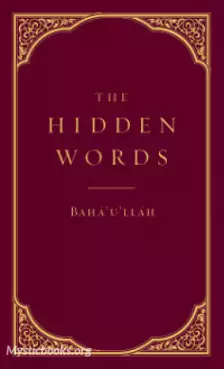
Timeline
Title
Country/Nationality
Bahuallah
Baháʼu'lláh was the prophet-founder of the Baháʼí Faith. He was born to an aristocratic family in Iran, and was exiled due to his adherence to the messianic Bábí Faith. In 1863, in Iraq, he first announced his claim to a revelation from God, and spent the rest of his life in further imprisonment in the Ottoman Empire. His teachings revolved around the principles of unity and religious renewal, ranging from moral and spiritual progress to world governance.
Baháʼu'lláh was raised with no formal education but was well read and devoutly religious. His family was considerably wealthy, and at the age of 22 he turned down a position in the government, instead managing family properties and donating considerable time and money to charities. At the age of 27 he accepted the claim of the Báb and became among the most outspoken supporters of the new religious movement that advocated, among other things, abrogation of Islamic law, which attracted heavy opposition. At the age of 33, during an attempt to exterminate the movement, Baháʼu'lláh narrowly escaped death, his properties were confiscated, and he was banished from Iran. Just before leaving, while imprisoned in a foul dungeon, Baháʼu'lláh claimed to receive revelations from God marking the beginning of his divine mission. After settling in Iraq, Baháʼu'lláh again attracted the ire of Iranian authorities, and they requested that the Ottoman government move him farther away. He spent months in Istanbul where the authorities became hostile to his religious claims and put him in house arrest in Edirne for four years, followed by a harsh confinement in the prison of ‘Akká, where he spent his final 24 years.
Baháʼu'lláh's wrote at least 1,500 letters, some of them book-length, that have been translated into at least 802 languages. Some notable examples include The Hidden Words, the Book of Certitude, and the Kitáb-i-Aqdas. Some teachings are mystical and address the nature of God and the progress of the soul, while others address the needs of society, religious obligations of his followers, or the structure of Bahá’í institutions that would propagate the religion. He viewed humans as fundamentally spiritual beings, and called upon individuals to develop divine virtues and further the material and spiritual advancement of society.
Baháʼu'lláh died in 1892 near ‘Akká. His burial place is a destination for pilgrimage by his followers, known as Bahá’ís, who now reside in 236 countries and territories, number between 5 and 8 million, and represent the only independent world religion to emerge in the modern age. Baháʼís regard Baháʼu'lláh as a messenger or manifestation of God in succession to Buddha, Jesus, or Muhammad.
Baháʼu'lláh was born in Tehran, Iran on 12 November 1817. Baháʼí authors trace his ancestry to Abraham through both his wives Keturah and Sarah, to the prophet Zoroaster, to King David's father Jesse, and to Yazdigird III, the last king of the Sassanian Empire. His mother was Khadíjih Khánum,[18][c] his father Mírzá ʻAbbás-i-Núrí, known as Mírzá Buzurg, served as vizier to Imám-Virdi Mírzá, the twelfth son of Fath-ʻAli Shah Qajar.
Baháʼu'lláh married Ásíyih Khánum, the daughter of a nobleman, in Tehran in 1835 when he was 18 and she was 15. In his early twenties Baháʼu'lláh declined the life of privilege offered by his aristocratic lineage, instead devoting his time and resources to a range of charitable works which earned him renown as "the Father of the Poor".
Books by Bahuallah

The Persian Hidden Words
The Hidden Words is written in the form of a collection of short aphorisms, 71 in Arabic and 82 in Persian, in which Baháʼu'lláh claims to have taken the basic essence of certain spiritual truths and written them in brief form. Baháʼís are advised by...